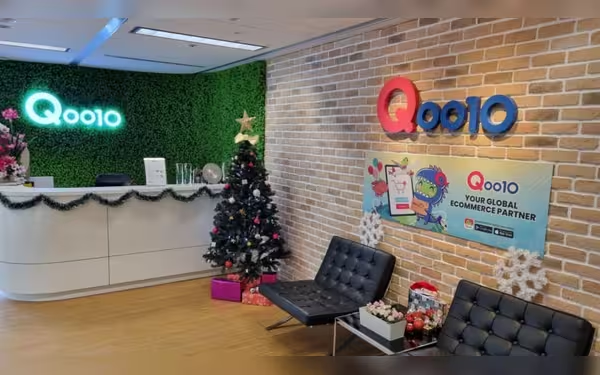Sunday, November 17, 2024 02:45 AM
Qoo10 E-Commerce Platform Wound Up by Singapore High Court
- Qoo10 faces liquidation due to financial difficulties.
- Korea Culture Promotion claims significant unpaid debts.
- E-commerce platforms must prioritize financial management.
 Image Credits: channelnewsasia
Image Credits: channelnewsasiaQoo10, an e-commerce platform, is ordered to wind up by Singapore High Court amid financial troubles and unpaid debts to vendors.
SINGAPORE: The e-commerce platform Qoo10, which has been facing significant financial difficulties, has been ordered to wind up by the Singapore High Court. This decision was made on November 11, and liquidators have been appointed to manage the company's affairs. Qoo10, based in Singapore, has been embroiled in a debt scandal, with numerous vendors and businesses claiming that they have not received payments on time. Some of these businesses have even turned to the courts for assistance.
One of the affected parties is Korea Culture Promotion (KCP), which operates various cultural portal sites and provides culture gift certificates and other products to customers in South Korea. According to court documents, KCP stated that it was among the many merchants “left high and dry” by Qoo10. The company, along with its South Korean subsidiaries, reportedly owes over 76 billion won (approximately US$54.4 million) to its creditors. Of this amount, nearly 6 billion won is allegedly owed to KCP alone.
KCP has also claimed that Qoo10 refused to honor the guarantees that were supposed to secure the liabilities of its two South Korean subsidiaries, TMON and WeMakePrice. The liabilities under these guarantees are said to exceed 70 billion won. The troubles for Qoo10 began to surface in July when TMON and WeMakePrice failed to make payments to merchants using their platforms. This prompted South Korean financial authorities to initiate an investigation into the matter.
As a result of these financial issues, TMON and WeMakePrice filed for corporate rehabilitation in the Seoul Bankruptcy Court. In October, the court ruled that these companies should be sold off in order to resolve the ongoing payment delays. This situation highlights the challenges faced by e-commerce platforms in managing their financial obligations and maintaining trust with their vendors.
The winding up of Qoo10 serves as a cautionary tale for other e-commerce businesses. It underscores the importance of financial management and the need for transparency in dealings with vendors. As the digital marketplace continues to grow, companies must prioritize their financial health to avoid similar pitfalls. The fate of Qoo10 is a reminder that even established platforms can face dire consequences if they fail to meet their obligations.













